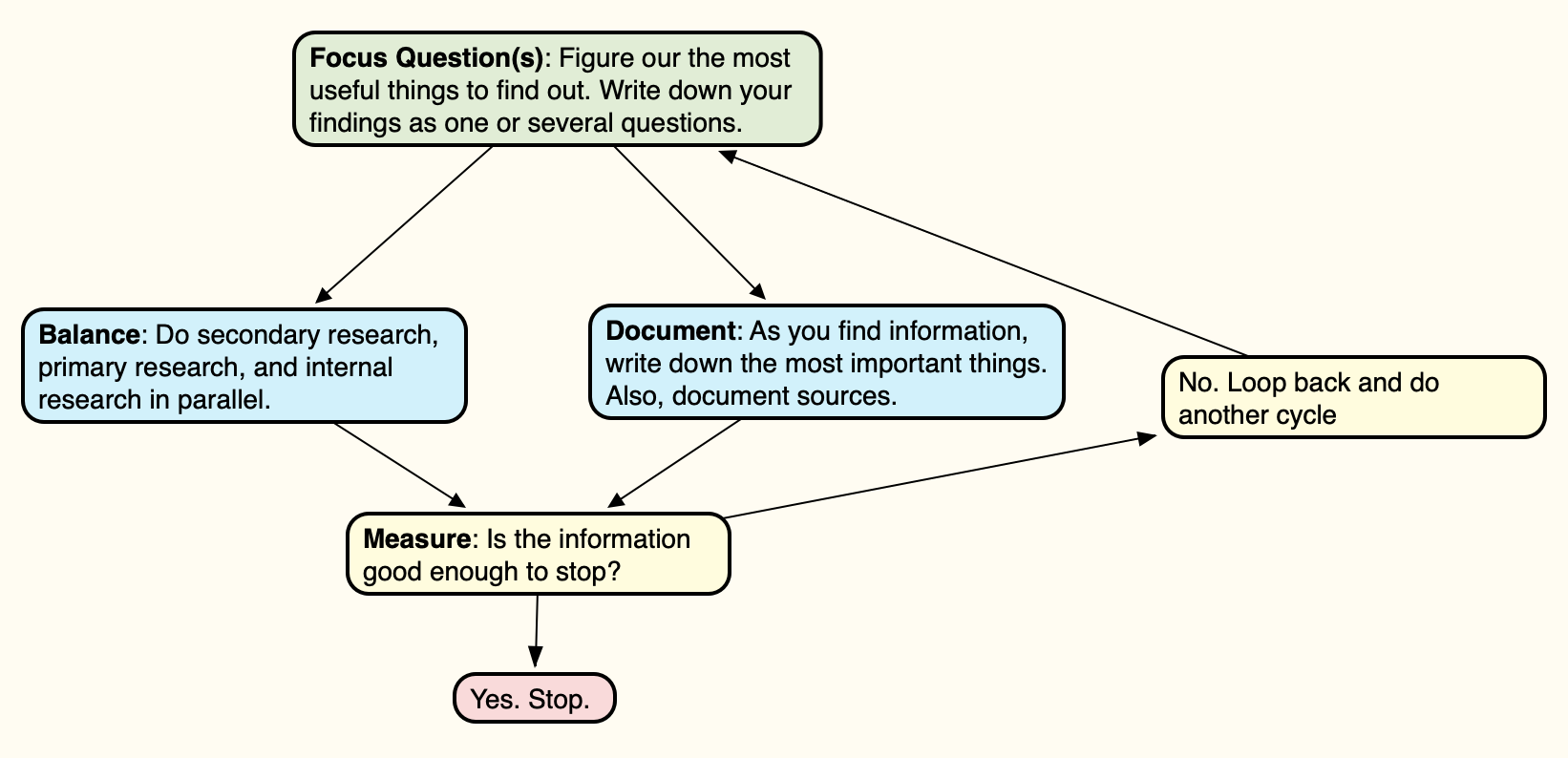Effective Research: The Method
- id: 1685412854
- Date: Sept. 14, 2023, 3:19 p.m.
- Author: Donald F. Elger
Effective Research
Research: Research is process of getting information for solving a problem, learning, making a decision, figuring something out, planning a vacation, or whatever.
Effective Research: Effective research (ER) is a method for doing research that I use and that I teach. ER is defined by its rewards and by its actions.
Here are some of the rewards of ER.
High Quality Information: The information found during the research process meets seven criteria: useful, true, accurate, complete, easy-to-understand, well organized, and justified. Information that meets these criteria is called good information or high quality information
Minimum Effort: The information is found with minimum levels of time, calendar-time, cost, effort, frustration, and so on.
Maximum Learning: The researcher get the maximum amounts of learning, enjoyment, satisfaction, and so on.
Sound Documentation: The information is well-documented as measured by:
- At any time ranging from short to long, the researcher can easily add new info, retrieve info, update info, and delete info. Or, change the organization structure.
- The researcher can easily share the information with others.
- Sources of information are easily found and cited.
Impacts: The researcher can do primary research so well that they can impact the world with their finding, typically through the process of publication in archival journals.
Actions of ER
Here are the actions of ER (Fig. 1).
 Figure
1: The actions that make up the effective research (ER) method.
![[effective-research.scap]]
Figure
1: The actions that make up the effective research (ER) method.
![[effective-research.scap]]
Key Idea: As shown in Fig. 1, research is an iterative process which means that one gets high quality from doing the process over and over. Think of research as search, search again, search a third time, and so on. These iterations continue until the quality of the information is good enough to stop.
Research can take a great amount of work, time, or cost. Part of the ER method is to always make sure that benefits of the information found from the research process greatly exceed the costs, time, and efforts.
Three Types of Research
Research activities can be organized into three categories (cats): secondary research, primary research, and internal research. For most research tasks, we use all three types. ## Secondary Research
Secondary Research is the process of getting information from other people by asking questions, listening to lectures, reading books, reading web articles, watching videos, reading journal articles, and such.
Secondary research is like stealing. We find the good ideas that are out there. We “borrow” them and this makes us look smart when the truth is that we are open to the ideas of others.
Secondary research is like panning for gold. There is a huge amount of information out there. We sift through this massive pile and pull out the gold nuggets.
Secondary research is applied to all research tasks because it is so time effective as compared to primary research.
Primary Research
Primary Research is the process of getting information by direct means such as observations, experiments, calculations, models, surveys, investigative journalism, ethnography, trying something out, and so on.
Most academic research and most journal publications involve primary research. However, I use primary research on nearly every research task I take on. In other words, primary research should be used most of the time.
Internal Research
Internal Research involves bringing information to surface that we or members of our team already know. Some of the methods for internal research are brainstorming, writing about a problem, and socratic questioning.
Documentation
Writing things down in your personal documentation system is essential to ER.
It is essential to paraphrase the information you find so that it connects to your everyday world. This is because research involving finding information and also figuring out what it means.
The method that I use for documentation and that I teach is called effective documentation. For more information see this note.
Relationships
- ER is one of the The 10 Essential Life Skills.